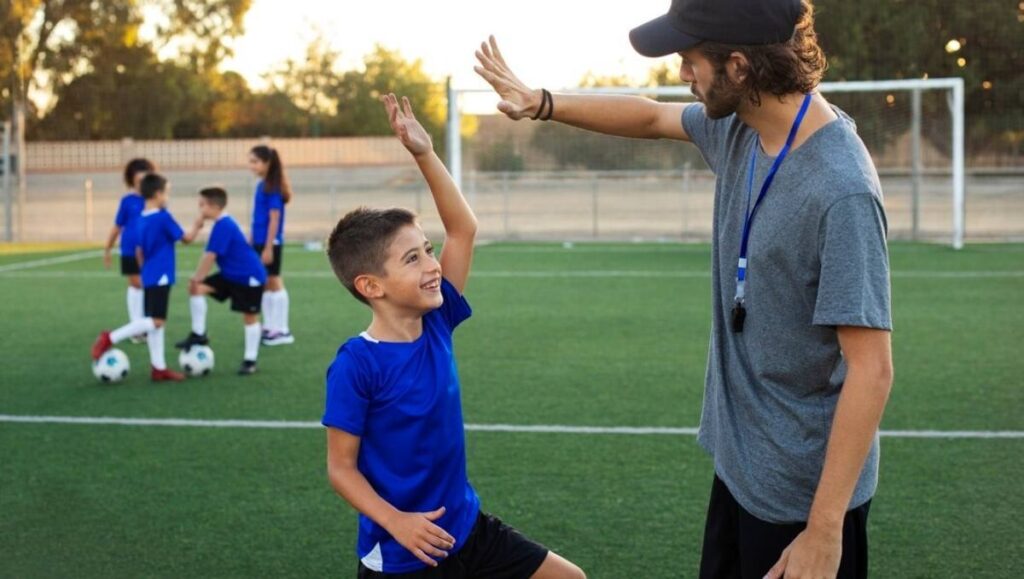The impact of sports in education and on a student’s development is significant as it improves physical health, mental well-being, social abilities, and academic performance. It is crucial, therefore, to incorporate a well-rounded education that includes both indoor and outdoor sports, along with other extracurricular activities. This approach helps promote responsible individuals who are ready to face life’s obstacles.
Many educators are adopting a holistic approach that highlights the overall development of students by combining a strong sports program with academic learning. This blog will walk you through the role of sports in schools and its importance in education.
Importance of Sports in Education – A Comprehensive Guide
How Does Integration of Sports Impact a Student’s Life?

Sports offer an opportunity to bring out inner skills which further can be converted into beneficial talent with the help of expert coaches. A healthy body is the result of a healthy mind, and students are strongly encouraged to incorporate at least an hour of physical exercise into their daily routine to stay healthy and avoid routine illnesses.
With the growing spirit of today’s youth, sports like badminton and cricket have become the favorites of children. Schools, knowing the importance of sports in education, have introduced these sports to their facilities to ensure the engagement of students in physical activities. Therefore, sports help in nurturing individuals who are capable enough to face upcoming challenges.
Importance of Sports in Education
There are a range of benefits of sports for students in their educational as well as lifelong journey. Not only does it help in maintaining physical fitness but also instills core values that stay with students for a lifetime. These include:
1. Physical Health
Engaging in sports provides an enjoyable way to use our physical capabilities. Regular participation in sports has consistently been shown to improve overall physical health. It helps maintain a healthy weight, builds muscle, and boosts cardiovascular fitness.
2. Character Development
Regular sports participation requires discipline, which is essential for managing time effectively and balancing responsibilities. Sports teach important life lessons, such as facing challenges, overcoming setbacks, and learning from defeats. These experiences help to build strength and determination during difficulties, contributing to character education in students
3. Motor Skills Development
Sports also play a crucial role in enhancing motor skills which are the coordinated movements required for precision and agility. Sports involve a combination of these skills that contribute significantly to the comprehensive development of physical coordination. Tasks like catching a ball, swinging a racket, or dribbling a basketball need the coordination of various body parts.
4. Mental Well-being
Mental fitness is as important as physical wellness. As there are many ways to promote mental well-being, sports are one of the most effective and widely practiced methods. Along with improving physical health, sports in education also support and enhance mental health. Research has shown that engaging in physical activities helps reduce stress, anxiety, and depression while promoting a positive outlook.
5. Goal Setting and Achievements
Sports focus on objectives and goals such as if they are achieving a particular time, score, or team victory. The process of aiming toward these goals requires preparation, planning, and strategy. Goal setting helps individuals focus their efforts, stay motivated, and track their progress. Moreover, the sense of achievement exceeds the sports field and boosts self-esteem and confidence.
6. Academic and Professional Success
Athletes usually excel in academics as well as on the field, due to the time management skills and self-discipline developed through sports. The balance required to manage academic and sports commitments contributes to improved study habits and stronger work ethics.
7. Healthy Lifestyle
Individuals who play sports generally develop an acute awareness of nutrition and obey strict dietary plans to maintain peak physical condition. This awareness leads to aspects like sleep schedules and balanced fitness routines which contribute to an overall healthy lifestyle.
8. Cultivating Lifelong Habits and Passions
The love for sports that begins in school years often carries till adulthood which promotes a lifelong commitment to health and fitness. The passions and interests developed through sports can shape future career choices and leisure activities.
9. Encouraging Discipline and Time Management
The strict timetables of training sessions, matches, and practices require students to develop exceptional time management skills. Maintaining academic obligations with sports commitments teaches pupils how to prioritize and handle their time effectively.
10. Social Skills
Many sports require teamwork which encourages communication and interpersonal skills. By participating in sports from a young age, children learn how to work with others, building cooperation, communication, and shared responsibility.
Conclusion
Sports play a vital role in shaping well-rounded individuals. They provide a unique environment for students to develop essential life skills, build strong social connections, and adopt healthy lifestyles. As educators and parents, it is crucial to recognize the importance of sports in education for student’s overall development.
At Sanjay Ghodawat International School, we realize the immense value of sports in shaping well-rounded individuals. Our extensive sports schedule promotes physical health, mental well-being, and character development. Through a combination of indoor and outdoor sports, students are encouraged to develop teamwork, discipline, and leadership skills. Hence, we are dedicated to delivering a platform for pupils to excel both on the field and in the classroom.
Also read: How Technology is Transforming Career Guidance for Student






Leave a Reply